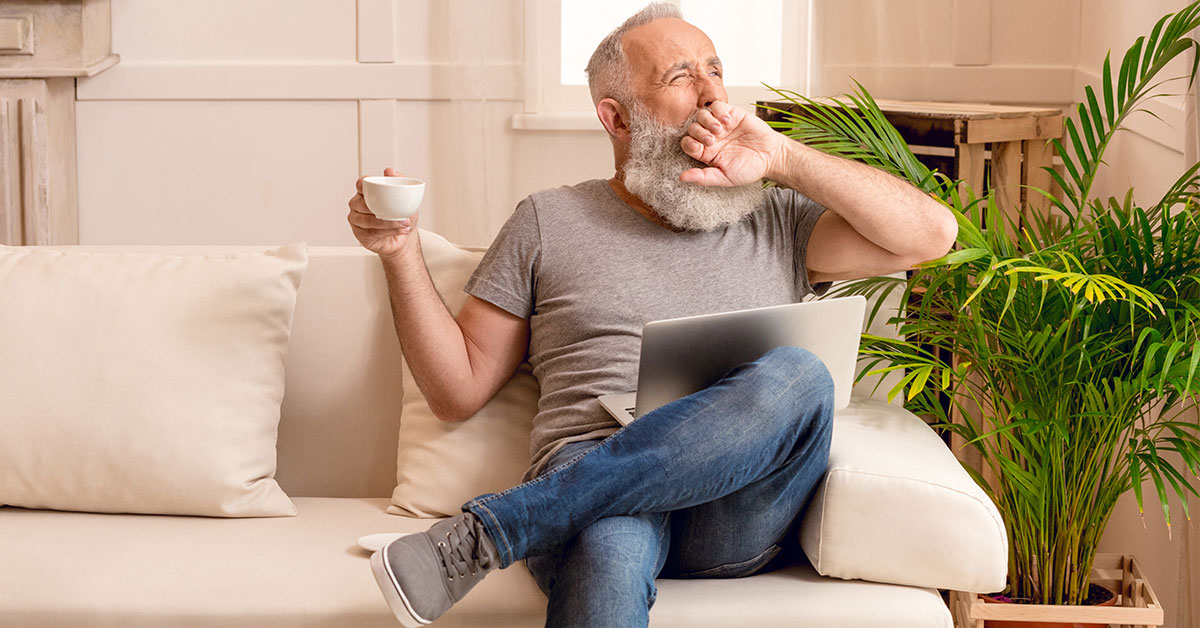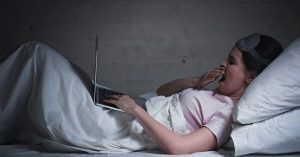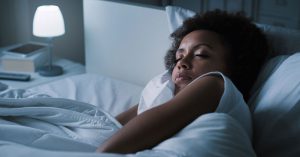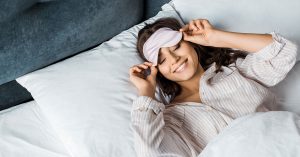Quality sleep is essential for health. While some people find it easy to just close their eyes and fall into a deep sleep each night, modern life has made that more difficult for most people.
In this article, we’re going to dig into what makes you sleep. First step to falling asleep easier is knowing what makes our bodies want and need to sleep. Once we know what those things are that help us fall asleep naturally, then we can make sure that we’re giving our body what it needs to fall asleep and removing the things that stop us from falling asleep.
Our body has an internal clock, called a circadian rhythm, that helps prepare us to wake up in the morning and fall asleep each night. There are many factors that can impact our internal clock, making it easier or more difficult to fall asleep, stay asleep, and wake up. When we disrupt that internal clock, it forces us to turn to things like caffeine to stay awake longer, medications to fall asleep, and black-out curtains to sleep in later, further disrupting our body clock.
Environmental Cues
For most people, our body’s instinct is to want to fall asleep in the evening as it gets dark and then wake up in the morning as the sun comes up. As the day shifts to morning or evening, our body releases hormones based on the light.
How Darkness Helps Us Sleep
Darkness is essential for sleep. The lack of light in the evening naturally signals our body to release melatonin, a hormone that helps us sleep.
“Melatonin, a hormone produced in the brain’s pineal gland, is often known as the “sleep hormone” or the “darkness hormone.” Melatonin influences sleep by sending a signal to the brain that it is time for rest. This signal helps initiate the body’s physiological preparations for sleep—muscles begin to relax, feelings of drowsiness increase, body temperature drops. Melatonin levels naturally rise during the early evening as darkness falls and continue to climb throughout most of the night, before peaking at approximately 3 a.m. Levels of melatonin then fall during the early morning and remain low during much of the day.” (ResMed)
Since melatonin is triggered from light, or lack thereof, artificial light from our computers, phones, televisions and lights inside our homes, can interfere with our body’s ability to create melatonin to help us fall asleep each night.
This is one of the main reasons why it’s so important to have an evening routine where you reduce light exposure, put away your phone, and let your body help you naturally prepare for rest.
How Light Helps us Wake Up
While darkness is essential for sleep, light is essential for waking us up. As the sun comes up each morning, the light signals our body to release cortisol, a hormone that wakes our body up. The reduction in melatonin, along with the increase in cortisol helps prepare our body for the day ahead.
Even if you go to bed late in the evening, your body may still want to release cortisol and wake you up as the sun comes up. Using black-out curtains or other methods to help reduce natural light in your room may help you sleep deeper into the morning, but it can also disrupt your body’s natural clock.
Allowing your body to naturally help you fall asleep, stay asleep, and wake up can improve the quality of your sleep.
While environmental cues play a huge role in our internal clocks and sleep cycles, there are other factors involved as well.
Adenosine
One factor that helps us sleep is the build up of a compound called adenosine while we’re awake. “While you’re awake, the level of adenosine in your brain continues to rise. The increasing level of this compound signals a shift toward sleep. While you sleep, your body breaks down adenosine.” (National Institutes of Health, NIH)
Have you ever taken a nice nap during the day but then couldn’t fall asleep at your normal time that evening? This could be one of the factors. Adenosine needs time to build up and then helps you fall asleep more easily.
Caffeine’s Effect on Adenosine
Ever felt tired in the late afternoon, but couldn’t take a nap, so you turned to caffeine hoping that a cup of coffee or other caffeinated beverage would help boost your energy levels and get through the rest of the day? This routine could actually be hurting your body clock because caffeine actually blocks your adenosine receptors. This is why it can be so much more difficult to fall asleep at night after having caffeine in the evening.
The caffeine doesn’t necessarily provide you with energy, it actually blocks your body’s natural ability to get tired, disrupting your circadian rhythm and making it more difficult to fall asleep and stay asleep.
So What Makes You Sleep?
Your body has many natural systems in place to help you sleep. The release of certain hormones at certain times, based on environmental cues, helps your body know when to start winding down or when to start waking up.
Unfortunately, modern life can disrupt that natural cycle and force us to turn to things like caffeine to stay awake longer, medications to fall asleep, and black-out curtains to sleep later, further disrupting our body clock.
If you’re serious about improving the quality of your sleep, focus on listening to your internal clock and creating an evening routine that helps your body. Also, consider only drinking coffee in the morning, and look for natural herbs and supplements to aid in falling asleep and staying asleep.








